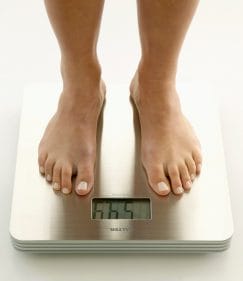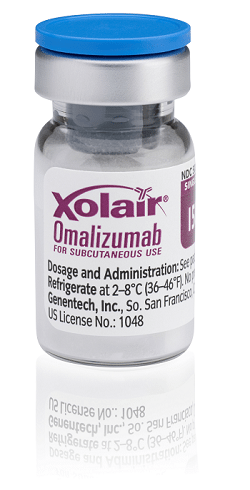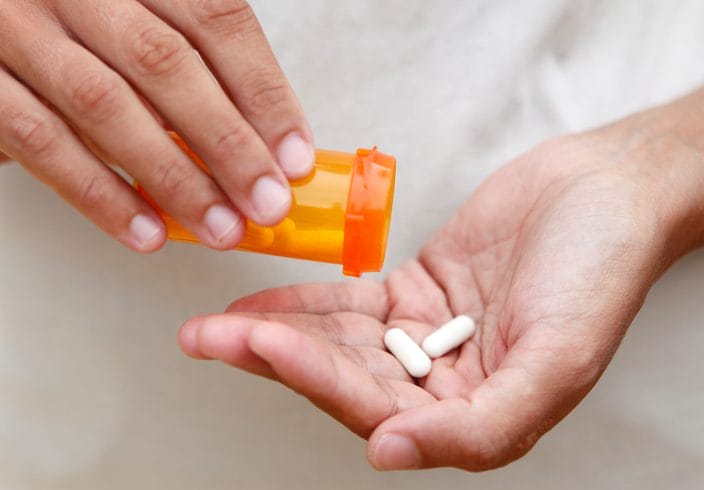From recurring symptoms to supplements and gluten-free diet solutions, three experts weigh in on our readers’ celiac questions.
MAYBE you have just been diagnosed with celiac disease, or maybe you were diagnosed several years ago. You’ve been told what it is so many times, you can dutifully recite it by rote: an autoimmune condition in which the body reacts to the presence of gluten, a protein in wheat, rye and barley, by damaging the villi in the intestine that are essential for absorbing nutrients.
It may have taken years for you to be diagnosed with celiac disease as you were treated for other conditions. And now that you know what you have and that you need to follow a strict gluten-free diet to feel well, you find that’s not so easy. You have questions about everything from what nutrients you need, to how much damage accidental glutening does, to what the future holds for treatments. Or, you may want to know why you are still experiencing symptoms, even though you have been eating gluten-free.
To help with these issues, Allergic Living consulted three professionals – gastroenterologists Dr. Joseph Murray of the Mayo Clinic and Dr. Alessio Fasano of Massachusetts General Hospital, and Shelley Case, a registered dietitian who is an authority on the gluten-free diet. Their thoughtful and commonsense responses should help you understand and manage your celiac disease better than ever.
Why don’t I feel better even though I’m on a gluten-free diet?
Dr. Joseph Murray: I often have patients ask, “I’ve invested so much into this diet so why has it helped some symptoms and not others?” It depends on whether they have been gluten-free for six months or six years and how long they’ve gone before they were diagnosed in the first place.
I just saw a patient the other day who had neurological symptoms and wanted to know if those had been caused by her celiac disease. But her intestine had healed. We use blood tests to screen for [elevated] celiac antibodies and follow-up biopsies to look for damage. If those tests are negative, then we tell such patients that we have no basis to blame celiac disease, not even for symptoms such as diarrhea. And if blood tests are positive, then we have to review their diet, as gluten exposure is occurring.
Dr. Alessio Fasano: There is a misconception that celiac disease is like a food allergy so that if you remove gluten, you’ll feel better right away. We know that it can take years for the damage to be done and it’s logical that repairing it takes time, too. Of course, as in any other process in biology, there are extremes. A small proportion of celiac patients will negatively respond to the presence of gluten even if it is below the threshold of under 20 parts per million that the FDA requires for a product to be labeled gluten-free. This is something that has to be explored further.
Are there nutritional supplements I should be taking?
AF: It’s a good idea to see a dietitian who specializes in celiac disease and can give advice about multivitamins and supplements – which ones are safe and which ones may cause constipation or diarrhea.
JM: If a woman is still menstruating, iron stores may not replenish well and she may need an oral iron supplement. If a patient is deficient in vitamin B12 [key to the function of the brain and nervous systems and the production of blood cells] , it may be hard to restore because by the time we find the deficiency, she may have already depleted five years’ worth of the vitamin in her liver.
Shelley Case: You should focus first on eating a healthy, nutritious, gluten-free diet. People with celiac disease are often anemic, so it’s important to eat iron-rich foods. However, if your iron levels remain low, you may need an iron supplement. But remember that these can cause nausea and abdominal pain.
Is there a source of iron that is better than others?
SC: There are two forms of dietary iron – heme and non-heme. Heme iron, found in meat poultry, fish and seafood, is more efficiently absorbed than non-heme, which is found in vegetables, fruits, grains and legumes. If you don’t eat meat or chicken, try shrimp, sardines, oysters and clams.
The best sources of non-heme iron include asparagus, broccoli, green peas, baked potatoes with skin, dried apricots and prunes, and pulses such as soybeans and lentils. Vitamin C increases absorption of non-heme iron, so I also recommend eating foods rich in the vitamin, such as tomatoes, peppers and oranges.
 Will I be more prone to developing other autoimmune diseases because I have celiac disease?
Will I be more prone to developing other autoimmune diseases because I have celiac disease?
AF: There is a clear connection between autoimmune conditions such as Type 1 diabetes and celiac disease. Indeed, whether or not celiac disease causes other autoimmune diseases to materialize is still a subject of debate.
One paper published by an Italian group found that the longer it takes for you to get diagnosed with celiac disease, the greater the chance that you will develop one of these related conditions.
JM: Although it’s a very controversial claim – that gluten causes other diseases – I do tell my celiac patients they have a genetic predisposition for other autoimmune conditions, such as hypothyroid conditions. However, with the exception perhaps of the skin condition dermatitis herpetiformis, celiac disease itself rarely leads to other diseases.
If you’re gaining weight, or feel sluggish and cold, you need to be checked out because those are signs of an underactive thyroid [a gland that secretes hormones to regulate growth and metabolism]. I like to check every two years to see if a celiac patient is developing such a condition. When it comes to Type 1 diabetes, although the two conditions have been linked, the likelihood of someone with celiac disease developing it is much lower than the other way around.
What about osteoporosis and cancer?
AF: Celiac disease does carry a higher risk of co-morbidities other than autoimmune conditions, although the risk of cancer has been overplayed. It’s rare. Osteoporosis is much more of an issue because your body has been deprived of key nutrients to keep bones healthy. If you are diagnosed with celiac disease by the age of 35, say, you have time to repair the damage. Any later, and the most you can do is stem the progress of the damage.
How strictly do l have to follow a gluten-free diet?
SC: Very! I had a client who told me he had beer and pizza once a week and didn’t get symptoms. I explained the physiology of the disease and how, even if he didn’t feel bad, damage was still being done to his villi and there would be consequences that could include osteoporosis and other autoimmune diseases
If I consume gluten, is there anything I can do to mitigate a reaction?
JM: Make sure you are hydrated, and rest as needed. It’s a good idea to avoid taking an anti-diarrheal agent like Imodium in the first two to three days, until all the gluten is out of the system. Patients who get really ill will need to get medical attention, and it might be treated as an allergic reaction with steroids. Other than that, you have to just suffer through it.
What does getting glutened mean for me in the long term?
JM: Probably not a lot if you don’t repeat it often because the effects are pretty short-lived. That said, I do have patients who tell me, “Doc, I do my best, but I eat out a lot and get glutened about once a week.”
In those kinds of cases, I can pretty much assure them they will have damage in their intestine. Even if the blood test is negative, it doesn’t guarantee their intestine has healed. The goal is to be glutened less often than once a month.
Is there a way I can tell how much damage I’ve done to my gut?
AF: Not really and certainly not on your own. Would you manage your diabetes by yourself? The classic technique – an endoscopy with an intestinal biopsy – will look only at the first couple inches of about 20 feet of intestine in the body And a newer technique, video capsule endoscopy [in which a patient swallows a pill-sized video camera that visually records its journey through the digestive tract] can be useful and informative.
How will celiac disease affect my weight?
JM: I hear variants of that all the time, “Will I gain weight?” or “Am I overweight because I have celiac disease?” In general, at the time of diagnosis, celiacs tend to be a bit lighter than the general population, with an average body mass index of 25. But that’s not saying much when you consider 25 is the upper limit of a normal weight and the average American has a BMI of 27 and is considered overweight!
So here’s my rule of thumb: I generally tell underweight patients that they may gain a bit on the gluten-free diet and, if they are normal weight, they may stay the same or gain a bit, too. And the morbidly obese – yes, there are morbidly obese celiac patients – will probably lose a bit.
SC: It is not uncommon for people with celiac disease to gain weight on a gluten-free diet. Because once you remove gluten from your diet, the villi [in the small intestine] heal and absorb the nutrients more effectively. Also many gluten-free products are lower in fiber and higher in calories, due to higher carbohydrate and fat content. That’s why it’s important to work with a dietitian to design a plan that is nutritious but not excessive in calories.
Is it safe to buy a product with a label that says ‘May contain traces of wheat’ or ‘Made in a facility that processes wheat?’
SC: That’s a tricky one. Unfortunately in the U.S. and in Canada, precautionary advisory statements are voluntary and unregulated. The Food and Drug Administration says these statements may be used, but must be truthful and not misleading. The challenge for gluten-free consumers is to find out the real risk of eating products that have these type of statements on the label.
For example, some manufacturers use these statements yet the risk is minimal to none. Others don’t include any statements on the label, but the risk could be greater. There is no clear-cut formula to know based on the presence or absence of precautionary statements. The bottom line is that people need to call the company to learn more about how they prevent cross-contamination.
What happens if I kiss someone who has just had a meal filled with gluten?
JM: The likelihood of celiac symptoms is extremely low. It’s not like peanut anaphylaxis, where the merest trace amount can cause a drastic allergic reaction. If, after eating a dish of pasta, your partner gives you a peck on the cheek, I wouldn’t worry at all. If it escalates into something more intimate, I’d suggest that teeth get brushed first. Better to be safe than sorry!
Does semen contain gluten?
JM: I have been asked this question – and the answer is “no.”
Will I one day be able to eat whatever I want and not have to worry about cross-contact when I eat outside my home?
AF: Right now, the gluten-free diet is the only solution, but there will be more answers and solutions down the road. The progression of our knowledge about celiac disease is like the development of any other body of scientific knowledge.
We started with the black hole and dark matter of many years ago when we didn’t know anything. Now, we’re at a point where we have mapped out many of the steps that lead to its development and can start to play with it and tweak destiny.
Think of it: until 2005, there were no clinical trials for celiac disease treatments, but in the past 10 years, there have been over 100. At Massachusetts General, we have just been entrusted by the National Institutes of Health to create a “crystal ball” to see if we can tell early on which infants will develop celiac disease and which will not.
So what does the future look like?
AF: You will come to my clinic and hand me a microchip that contains your genome information so that, genetically speaking, I know who you are, as well as a sample of stool. My computer will not only give me a detailed description of the macrobiotic environment in your gut, but it will also be able predict what the odds are that you will develop celiac disease – and I will be able to manipulate your microbiome so that you stay healthy.
These two concepts are already here in terms of health care, with personalized medicine and preventive medicine and, although I can’t give a timeline, I believe we now have all the tools we need to achieve this goal. We just have to make them work together.
Related Reading:
Gluten Freedom, by Alessio Fasano; Mayo Clinic Going Gluten Free, by Joseph A. Murray; and Gluten-Free Diet: A Comprehensive Resource Guide, by Shelley Case.









